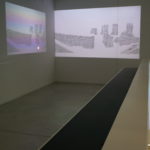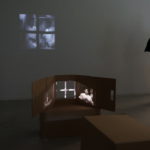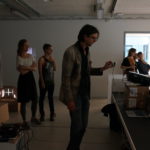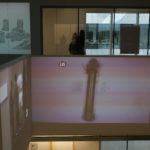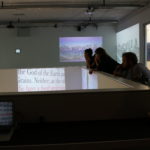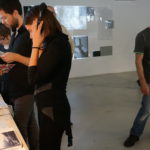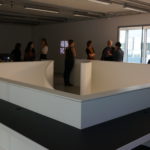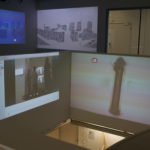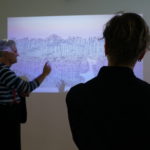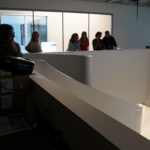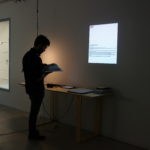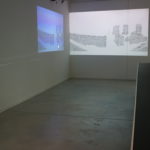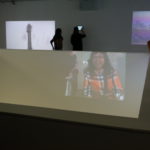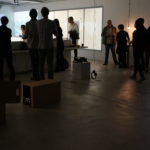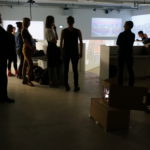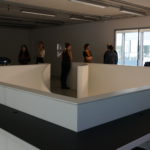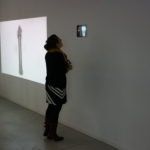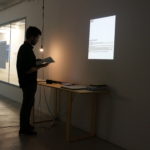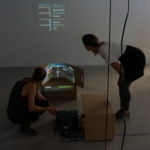Exhibition: What you Read is Not What we Write
│ reading as writing │ writing as reading
Exhibition at Connecting Space Zurich
9.-18. October 2014
Connecting Space Zurich, Toni-Areal, Pfingstweidstrasse 96, Zurich, Galerie 2
Bilateral soft opening Connecting Space Hong Kong and Connecting Space Zurich: Thursday, 9. October 2014, 1.30 pm (Zurich), 7.30 pm (Hong Kong)
Bilateral opening einer Ausstellung des Writing Machine Collective (School of Creative Media) im Connecting Space Hong Kong und in der Galerie 2, Toni-Areal.
Die Ausstellung befragt, inwiefern digitale Technologien in unterschiedlichen kulturellen Kontexten unser Leseverhalten verändern – Lektüre verstanden als ein Umgang mit der digitalen Verfügbarkeit von Text, Bild, Klang oder Bewegtbild.
Einige der Werke werden in einer Pop-up-Ausstellung, kuratiert von Studierenden des MA Transdisziplinarität, in der Galerie 2 gezeigt; gleichzeitig ermöglichen dort einige aufgelegte Materialien vertiefende Einblicke in einzelne Projekte von Connecting Spaces.
Weitere Informationen: http://www.connectingspaces.hk/tracing-data-what-you-read-is-not-what-we-write-2
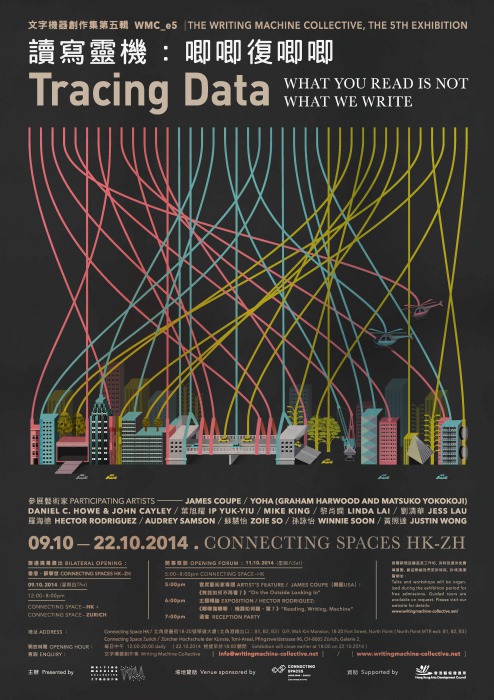
The impact of computation on both aesthetic expression and aesthetic criticism has been widely felt. Not only artists but also critics are using digital technologies to analyze works of art and literature. Many scholars in the so-called digital humanities, for instance, use the computer to “mine” individual texts, or large collections of texts, for patterns that are not obvious on the surface. Cinema scholars and experimental artists have also used the computer to re-examine existing films, presenting familiar content in unfamiliar ways. The computer has made possible not only new ways of making art and literature (writing) but also new ways of reading (understanding and analyzing it) it.
In the works presented in WMC_e5, reading is also writing, and vice versa. The crucial question for us is: How do computational technologies change what we call reading? The idea of reading is to be understood broadly, to include any act of engaging critically and creatively with a text. We understand reading so that it applies to language in a broad sense, including visual, sonic, and cinematic language. What can the act of reading become in a digital context? For instance, how can we read a film, photograph, or literary work through methods of computational analysis? How can we use those methods to read works of visual and literary art in ways that were not previously possible? The topic of reading is closely connected to the question of surveillance. We live in a society where privacy is continually under threat, not only due to government monitoring of activity, but also to the widespread collection, analysis, and exchange of consumer data by companies like Google, Amazon, or facebook. Techniques of data mining and data analysis play a crucial part in surveillance activities. Data needs to be “read” so as to be rendered useful. Surveillance can therefore be understood as a form of computationally mediated reading. In this way, new forms of reading acquire huge social and political significance. Moreover, many artists use techniques that originated in, or were inspired by, surveillance applications.
The Writing Machine Collective
As all 12 works for WMC_e5 open on 9 Oct 2014 at Connecting Space-HK, a special program of 4 works from WMC will be set up at Connecting Space Zurich to form our bilateral opening.
The four works are
Hector Rodriguez – Theorem 8 (single-channel version) – also at WMC_e5, Connecting Space-HK
Jess Lau – The Fading Piece (duo-channel animation) – also at WMC_e5, Connecting Space-HK
Linda Lai – Door Games Window Frames: Near Drama (single-channel version) – a work that shares the same codes running Vaulting Space at WMC_e5, Connecting Space-HK
Justin Wong – City Forum (single-channel version) – from WMC_e4, Hong Kong
Curation and display
Students MA in Transdiscipinary Studies, ZHdK (Mahroo Movahedi, Anna Rubi, Jana Thierfelder, Magnhild Fossum, Eirini Sourgiadaki, Daria Basistaya)
Guest: Lukka Gao Shiyu, invited artist City of Zurich Artist in Residence Program
For further information: see here.
Opening Exhibition ZH, October 9:
(© pictures by Florian Dombois)
